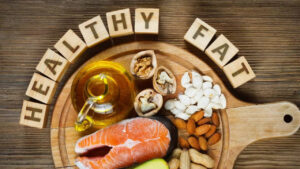3 Daily Habits That Can Help You Maintain a Strong and Healthy Heart

3 Daily Habits That Can Help You Maintain a Strong and Healthy Heart
Heart health isn’t something we can afford to think about only when symptoms arise. More and more people, including those in their 20s and 30s, are facing heart-related issues that were once considered problems of old age. While medical science has advanced, the real protection often lies in the everyday choices we make — particularly around food and lifestyle.
You don’t need a complicated routine or an expensive diet to take care of your heart. What you do need is awareness, consistency, and a willingness to make small changes that have long-term benefits. Below are three practical, manageable habits that can significantly reduce your risk of heart disease and support your overall well-being.
1. Watch Your Portions, Not Just Your Ingredients
Healthy eating isn’t just about what’s on your plate — it’s also about how much you’re eating. Large portions, constant snacking, and eating until you’re uncomfortably full can lead to calorie overload, which puts extra strain on your heart and body.
Start by paying attention to portion sizes. Use smaller plates or bowls to help guide your serving sizes naturally. Focus on including low-calorie, high-nutrient foods such as fresh fruits and vegetables, while cutting back on salty, processed, and refined foods like packaged snacks and fast food. These small adjustments can support both heart health and weight management.
2. Prioritize Fruits and Vegetables in Every Meal
Fresh fruits and vegetables are essential for a heart-supportive diet. They provide key vitamins, minerals, antioxidants, and fiber — all while being naturally low in calories. More importantly, they contain compounds that may help lower your risk of heart disease over time.
Aim to include a variety of fruits and vegetables throughout your day. Whether it’s a fruit smoothie in the morning, a salad at lunch, or roasted vegetables with dinner, building your meals around plant-based options can help you feel full without relying on processed or calorie-heavy foods.
3. Choose Whole Grains Over Refined Carbs
Whole grains offer powerful nutritional benefits, especially for your heart. They contain more fiber, antioxidants, and essential nutrients than refined grains, which helps in managing blood pressure, improving cholesterol levels, and maintaining steady energy throughout the day.
Incorporate foods like oats, quinoa, barley, millets, dalia (porridge), and sprouts into your regular meals. These not only promote better digestion and satiety but also reduce your dependence on refined flour products that offer little nutritional value. Over time, this shift can have a meaningful impact on your cardiovascular health.
These habits might seem simple, but when practiced consistently, they can offer powerful protection against heart-related diseases. Your heart works hard for you every single day — these daily steps are how you work hard for it in return.












